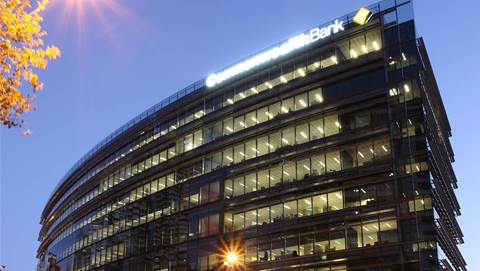The government has released a draft bill suggesting that digital platforms' voluntary misinformation and disinformation codes should remain, but also that the communications watchdog should be able to deem them ineffective, register its own and fines platforms for breaches.
The exposure bill [pdf] suggests giving the Australian Communications Media Authority (ACMA) the power to compel companies to provide information about their management of misinformation and disinformation.
The bill also suggested providing ACMA with the option to impose multimillion-dollar fines in response to systemic failures to prevent misinformation and disinformation, but only if ACMA replaces current voluntary codes with its own codes and standards first.
ACMA first called for more powers to regulate misinformation and disinformation in its June 2021 assessment report [pdf] on the opt-in voluntary codes managed by the platforms’ association the Digital Industry Group Inc (DIGI).
Communications Minister Michelle Rowland's proposed framework strikes a balance between DIGI’s demands and ACMA’s demands.
The bill would mean DIGI’s codes could remain if ACMA does not overturn them; Rowland has also sided with the platforms’ lobby in rejecting ACMA’s calls to apply the regulations to traditional news providers and to expand ACMA’s information-gathering powers to the contents of private messages.
Rowland has said that exempting private messages and traditional news providers from the regulations is a safeguard to prevent them from impinging on users' right to free speech and privacy.
One of ACMA’s demands granted by the bill is overturning DIGI’s opt-in model for the codes; this means that the ACMA’s powers would extend beyond the eight signatories of the voluntary codes - Adobe, Apple, Facebook, Google, Microsoft, Redbubble, TikTok and Twitter.
“The powers apply to digital platform services that are accessible in Australia…[including] social media, search engines, instant messaging services (although the content of private messages will be out of scope), news aggregators and podcasting services,” a summary [pdf] of the draft bill reads.
The voluntary codes
DIGI has campaigned against the government registering mandatory codes by trying to demonstrate that its voluntary codes have successfully incentivised the eight signatories to build robust systems and measures for combatting misinformation and disinformation.
Launched in February 2021, DIGI’s codes include commitments like disrupting advertising and monetisation incentives for disinformation, improving public awareness of the sources of political advertising and releasing annual transparency reports on measures taken against misinformation and disinformation posted on platforms.
However, the signatories' reports published last month did not each achieve the same degree of transparency in terms of revealing how they manage misinformation and disinformation.
All of the companies included their misinformation and disinformation policies, however, Twitter did not complement them with enforcement statistics like the others.
In contrast, Meta reported [pdf] removing "91,000 pieces of content across Facebook and Instagram in Australia for violating our harmful health misinformation policies,” during the 2022 calendar year.
And Microsoft’s Bing reported [pdf] reported making “defensive search interventions” in response to 45,100 Ukraine-related queries during the same period.
ACMA’s option to register codes and standards
On Sunday, Rowland invited submissions in response to the draft bill until August 6; she said she would introduce the bill to parliament later this year.
The bill suggests giving ACMA the power to create “codes” for specific companies that repeatedly fail to deal with misinformation and disinformation, and register industry-wide “standards” when codes are found ineffective.
Code breaches would carry fines of $2.75 million or two percent of global turnover (whichever is greater) and standard breaches would carry fines of $6.8 million or five percent of global turnover if it’s greater.
Criminal penalties could also be enforced in response to the creation of records or the provision of information to ACMA when the information provider or recorder maker knows it is false.
A statement explaining the bill [pdf] declares that making these powers available to ACMA would “incentivise and strengthen the voluntary framework.”
“ACMA would work with industry to ensure continuous improvement to the voluntary code which is overseen by industry
“However, should those efforts prove inadequate, ACMA would have the option to use the graduated set of reserve powers to ask industry to make a new, registrable code, or if necessary, ACMA could make a standard.”
Rowland said that the framework “aims to strike the right balance between protection from harmful misinformation and disinformation online and freedom of speech.”
Safeguarding free speech and privacy
A freedom of speech safeguard outlined in the summary of the draft bill aims to ensure ACMA "would have no role in determining truthfulness, nor will it have a role in taking down or requesting action regarding individual pieces of content.”
Instead, of censoring or determining the truthfulness of individual pieces of content, ACMA would be responsible for “ensuring digital platform providers have systems and measures in place to combat misinformation and disinformation on their services which pose a risk of serious harm.”
Examples of serious harms include “undermining the impartiality of an Australian electoral management body ahead of an election or a referendum…inciting other persons to commit hate crimes” or “vandalising critical communications infrastructure.”
ACMA won’t touch private messages or news providers
Another safeguard that the draft bill included to prevent ACMA’s powers from impinging on freedom of speech was rejecting the ACMA’s call to apply regulations to news providers.
“The code and standard-making powers will not apply to authorised electoral and referendum content and other types of content such as professional news and satire,” the summary of the draft bill [pdf] reads.
This was despite ACMA arguing that the media exemption creates "potential loopholes for bad actors and less reputable news sources.”
ACMA said in a submission [pdf] to a review of DIGI’s voluntary codes last year that Australia’s codes should follow the European Union’s laws - The Digital Services Act - in not including the “media exemption”.
“We do not agree that the existence of other industry codes absolve platforms of any responsibility to address seriously harmful news content posted on their services…This position is consistent with the view taken by the European Commission."
Similarly, as a safeguard to protect privacy, the draft bill said that ACMA’s information-gathering powers would not extend to private messages.
“These powers will not require providers of digital platform services to reveal the contents of private messages or have requirements related to breaking encryption of private messages,” the summary of the bill [pdf] stated.
This was also a rejection of a power ACMA asked for in its submission [pdf] to DIGI’s review of its codes.
ACMA argued against exempting messaging services because they “continue to be a source of news for many of their Australian users… Telegram, for example, allows for ‘supergroups’ of up to 200,000 users.”



.jpg&h=140&w=231&c=1&s=0)























